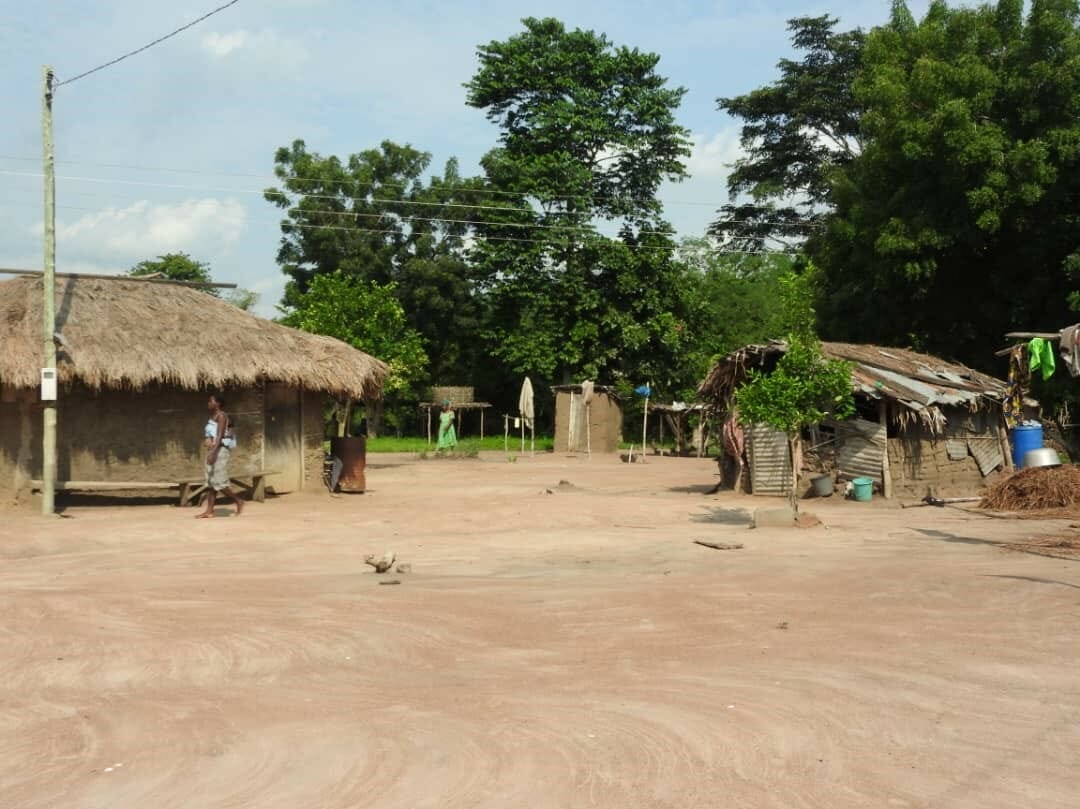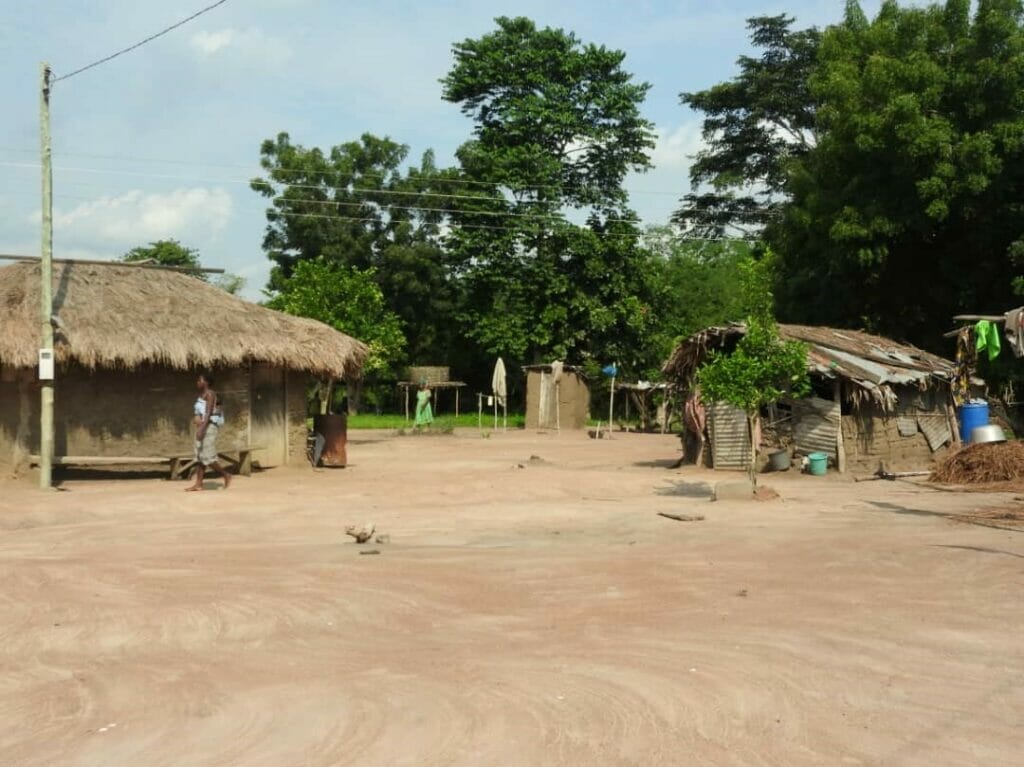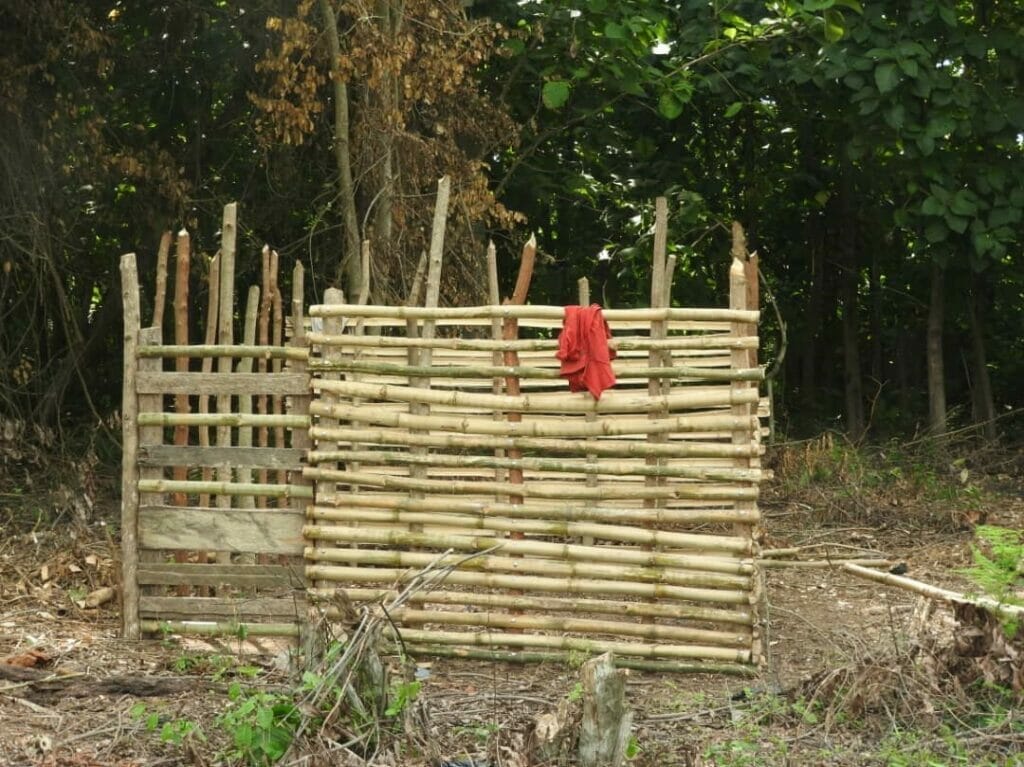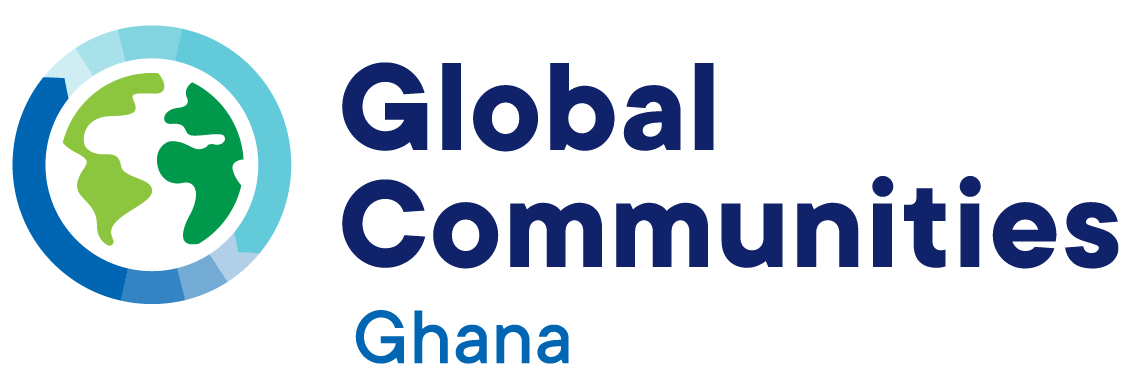News > Blog
From Open defecation to Sanitized; the journey of Bekuikope
Published 12/21/2022 by aadams


“We used to defecate just anywhere in the bushes around us and we saw nothing wrong with that practice,” explained Kujo Bekui Agboza, a resident of Bekuikope, a small farming community in the Adaklu district of the Volta region in eastern Ghana.
For the residents of Bekuikope, it was a long, hard journey of consistent practice and behavioral change, but they are now proud to be deemed a ‘Sanitized Community.’ The residents of Bekuikope were assisted along their journey by Global Communities, who began working with the community as part of the USAID WASH for Health project. Global Communities worked with residents to implement a process called Community Led Total Sanitation (CLTS), an approach which has been used to educate communities and help eliminate open defecation around the world.
It takes a lot of communal effort and resolve to achieve the status of a Sanitized Community. A community must first attain what is known as Open Defecation Free (ODF)-Basic status. Then progress to ODF status and then to a Sanitized Community. Ultimately, a community can be certified as a Sustainable Sanitized Community.
A community practicing open defecation is declared ODF-Basic, when there is no visible fecal matter in the entire community for a period of two months. After four months of being ODF-Basic, the community can be declared ODF if at least 80 percent of households can show they have latrines and handwashing facilities. After six months of being ODF, if all households have access to improved latrines with hand washing facilities and all residents are demonstrating proper management of refuse and waste water and good hygiene practices, a community is declared sanitized by a regional verification body. Finally, a community is declared a Sustainable Sanitized Community when it has sustained its sanitized status for three successive years.
The residents acknowledged that it was very difficult during the initial stages because they were not used to the proper sanitation and hygiene behaviors. They also did realize the health implications of open defecation until it was explained to them in a way that demonstrated the path of contamination between open feces and food. Once they understood the fecal-oral transmission of disease, the residents agreed to collectively end the practice of open defecation. This is a process called ‘triggering’—a participatory approach of outlining the negative effects of open defecation with the aim of influencing communities to stop the practice. Kujo was so motivated the process that he enlisted to become a ‘Natural Leader’ in Bekuikope. Natural Leaders are volunteers from the community who are trained in CLTS to help drive the process forward. Kujo recalls how the residents of Bekuikope came together to make their success possible. “We did not hesitate to collectively construct household latrines. We worked together, moving from one house to another, to construct these latrines and rid ourselves of improper hygiene and sanitation practices. But it was fun and interesting,” he explained.

The community has also witnessed health benefits since they started practicing proper hygiene and sanitation behaviors. Nana Dorgah, a mother of six, noted that the incidence of diarrhea, especially among children, has significantly gone down since the start of the USAID WASH for Health project. “Personally, I have not utilized my health insurance for close to two years,” she said.
As a result of the health benefits and the community prestige and pride that comes with ODF status, the residents of Bekuikope were motivated to go the extra mile. “During the celebration of our ODF status, we were told we could progress further if we desired to. At that time there wasn’t much work to be done, so we consulted the CLTS team on how to safely keep our animals and manage their fecal matter. We were also taught how to treat, store and retrieve the dug-out water for drinking in the dry season,” explains Favor Abbey, a Natural Leader and mother of five.

The community, with technical support from the Global Communities, crafted pens for their domestic animals. They also constructed barriers around their community water source to protect it from run-off and other contaminants. Maintenance of latrines and handwashing stations by all households remains a daily activity and the community has also begun digging new holding pits for new latrines since the current ones are becoming full.
Kujo, on behalf of the community firmly resolves that “We will continue using our facilities well and continue to project our community in the district. Knowing we are one of the few communities in the entire region to achieve this feat. We the people of Bekuikope, will not relent in our effort to attain the Sustainable Sanitized status!”
